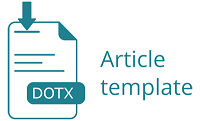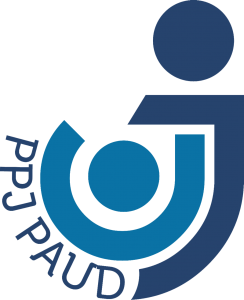KECERDASAN INTERPERSONAL ANAK EARLY CHILDHOOD DI MASA PANDEMI COVID-19
Abstract
Keywords
Full Text:
PDFReferences
Bakken, L., Brown, N., & Downing, B. (2017). Early Childhood Education: The Long-Term Benefits. Journal of Research in Childhood Education, 31(2), 255–269. https://doi.org/10.1080/02568543.2016.1273285
Berk, L. E. (2015). Child Development, Ninth Edition. Pearson Education, Inc.
Bobbitt-Zeher, D., & Downey, D. B. (2013). Number of Siblings and Friendship Nominations Among Adolescents. Journal of Family Issues, 34(9), 1175–1193. https://doi.org/10.1177/0192513X12470370
Damayanti, R. R., CH, M., & Hapidin, H. (2018). Pengaruh Bermain Peran Mikro terhadap Kecerdasan Interpersonal. Jurnal Obsesi : Jurnal Pendidikan Anak Usia Dini, 2(1), 34. https://doi.org/10.31004/obsesi.v2i1.5
Damon, W., & Eisenberg, N. (2006). Handbook of child psychology, 5th ed.: Vol 3. Social, emotional, and personality development. In (1998).Handbook of child psychology, 5th ed.: Vol 3.Social, emotional, and personality development.
Downey, D. B., & Condron, D. J. (2004). Playing well with others in Kindergarten: The benefit of siblings at home. Journal of Marriage and Family, 66(2), 333–350. https://doi.org/10.1111/j.1741-3737.2004.00024.x
El Nokali, N. E., Bachman, H. J., & Votruba-Drzal, E. (2010). Parent
involvement and children’s academic and social development in elementary school. Child Development, 81(3), 988–1005. https://doi.org/10.1111/j.1467-8624.2010.01447.x
Furnham, A., & Buchanan, T. (2005). Personality, gender and self-perceived intelligence. Personality and Individual Differences, 39(3), 543–555. https://doi.org/10.1016/j.paid.2005.02.011
Furnham, A., Clark, K., & Bailey, K. (1999). Sex differences in estimates of multiple intelligences. European Journal of Personality, 13(4), 247–259. https://doi.org/10.1002/(SICI)1099-0984(199907/08)13:4<247::AID-PER329>3.0.CO;2-7
Furnham, A., Hosoe, T., & Tang, T. L. P. (2001). Male hubris and female humility? A cross-cultural study of ratings of self, parental, and sibling multiple intelligence in America, Britain, and Japan. Intelligence, 30(1), 101–115. https://doi.org/10.1016/S0160-2896(01)00080-0
Gardner, H. (1983). Frames of Mind, The Theory of Multiple Intelligence.
Gupita, N., Musayyadah, & Veronica, N. (2020). Desirable Self-Approach on Interpersonal Intelligence in Early Childhood Education. 487(Ecpe), 265–268. https://doi.org/10.2991/assehr.k.201112.047
Gupta, S. K. M. (2016). Effect of Family Variables on Multiple Intelligences of Secondary School Students of Gujarat State. International Journal of Indian Psychology, 3(3). https://doi.org/10.25215/0303.060
Hagk, A. M. N., & Kholilah, U. N. K. (2018). Perkembangan Kesetaraan Gender di Negara-Negara Arab. Kajian Bahasa, Sastra Dan Budaya Arab, 2, 385–396.
Hidayat, L. (2018). Kemampuan interaksi sosial anak usia dini berdasarkan pada pemberian gadget oleh orangtua di Kelurahan Sukorejo, Kecamatan Gunungpati, Kota Semarang.
Khadijah. (2016). Interpersonal Intelligence of Students Through Thematic Learning in Raudhatul Athfal ( RA ) Zulhijjah Medan. Research & Method in Education (IOSR-JRME), 6(5), 37–44. https://doi.org/10.9790/7388-0605043744
Kusumawardhana, I., & Abbas, R. J. (2018). Indonesia di Persimpangan: Urgensi “Undang-Undang Kesetaraan dan Keadilan Gender” di Indonesia Pasca Deklarasi Bersama Buenos Aires Pada Tahun 2017. Jurnal HAM, 9(2), 153. https://doi.org/10.30641/ham.2018.9.153-174
Larimore, R. A. (2020). Preschool Science Education: A Vision for the Future. Early Childhood Education Journal, 0123456789. https://doi.org/10.1007/s10643-020-01033-9
Mangunsong, F. M., Wahyuni, C., Psikologi, F., & Indonesia, U. (2018). Keterlibatan Orang Tua terhadap Keterampilan Sosial Siswa Berkebutuhan Khusus di Sekolah Dasar Inklusif. 45, 167–180. https://doi.org/10.22146/jpsi.32341
Mcwayne, C. M., Fantuzzo, J. W., & Mcdermott, P. A. (2004). Preschool Competency in Context : An Investigation of the Unique Contribution of Child Competencies to Early Academic Success. 40(4), 633–645. https://doi.org/10.1037/0012-1649.40.4.633
Nasser, R., Singhal, S., & Abouchedid, K. (2008). Gender Differences on Self-Estimates of Multiple Intelligences: A Comparison Between Indian and Lebanese Youth. Journal of Social Sciences, 16(3), 235–243. https://doi.org/10.1080/09718923.2008.11892624
Nurmalitasari, F. (2015). Perkembangan Sosial Emosi pada Anak Usia Prasekolah. Buletin Psikologi, 23(2), 103. https://doi.org/10.22146/bpsi.10567
Powell, D. R., Son, S., File, N., & San, R. R. (2010). Parent – school relationships and children ’ s academic and social outcomes in public school pre-kindergarten. Journal of School Psychology, 48(4), 269–292. https://doi.org/10.1016/j.jsp.2010.03.002
Purwanto, A., Pramono, R., Asbari, M., Budi Santoso, P., Mayesti Wijayanti, L., Chi Hyun, C., & Setyowati Putri, R. (2020). Studi Eksploratif Dampak Pandemi COVID-19 Terhadap Proses Pembelajaran Online di Sekolah Dasar. EduPsyCouns: Journal of Education, Psychology and Counseling, 2(1), 1–12.
Safaria, T. (2005). Interpersonal Intelligence. Amara Books.
Sakina, A. I., & A., D. H. S. (2017). Menyoroti Budaya Patriarki Di Indonesia. Share : Social Work Journal, 7(1), 71. https://doi.org/10.24198/share.v7i1.13820
Santoso, S. (2002). Pendidikan Anak Usia Dini. Yayasan Citra Pendidikan Indonesia.
Sary, Y. N. E. (2018). Relationship of Parenting with Child Interpersonal Intelligence in Wonokerto Village, Lumajang Regency. Jurnal Obsesi : Jurnal Pendidikan Anak Usia Dini, 2(2), 137. https://doi.org/10.31004/obsesi.v2i2.93
Setiawati, E. (2010). Interaksi sosial dengan teman sebaya pada anak homeschooling dan anak sekolah reguler. Indigenous, Jurnal Ilmiah Berkala Psikologi, 12(1), 55–65.
Suhanda, D. (2018). Application of project methods to increase interpersonal intelligence of early age children. Jurnal Empowerment, 7(9).
Wulandari, H., & Purwanta, E. (2020). Pencapaian Perkembangan Anak Usia Dini di Taman Kanak-kanak selama Pembelajaran Daring di Masa Pandemi Covid-19. Jurnal Obsesi : Jurnal Pendidikan Anak Usia Dini, 5(1), 452. https://doi.org/10.31004/obsesi.v5i1.626
Zsolnai, A., & Kasik, L. (2014). Functioning of Social Skills from Middle Childhood to Early Adolescence in Hungary. International Journal of Emotional Education, 6(2), 54–68. https://doi.org/10.1093/nar/7.1.15
DOI: https://doi.org/10.17509/edukids.v18i2.34965
Copyright (c) 2021 Edukids: Jurnal Pertumbuhan, Perkembangan, dan Pendidikan Anak Usia Dini

This work is licensed under a Creative Commons Attribution-ShareAlike 4.0 International License.















.jpg)






